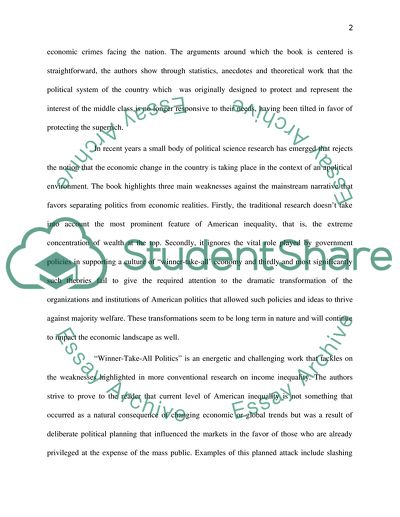Cite this document
(Critical Analysis of Winner-Take-All Politics Book by Jacob S. Hacker Report/Review - 4, n.d.)
Critical Analysis of Winner-Take-All Politics Book by Jacob S. Hacker Report/Review - 4. Retrieved from https://studentshare.org/politics/1843437-book-review
Critical Analysis of Winner-Take-All Politics Book by Jacob S. Hacker Report/Review - 4. Retrieved from https://studentshare.org/politics/1843437-book-review
(Critical Analysis of Winner-Take-All Politics Book by Jacob S. Hacker Report/Review - 4)
Critical Analysis of Winner-Take-All Politics Book by Jacob S. Hacker Report/Review - 4. https://studentshare.org/politics/1843437-book-review.
Critical Analysis of Winner-Take-All Politics Book by Jacob S. Hacker Report/Review - 4. https://studentshare.org/politics/1843437-book-review.
“Critical Analysis of Winner-Take-All Politics Book by Jacob S. Hacker Report/Review - 4”, n.d. https://studentshare.org/politics/1843437-book-review.


